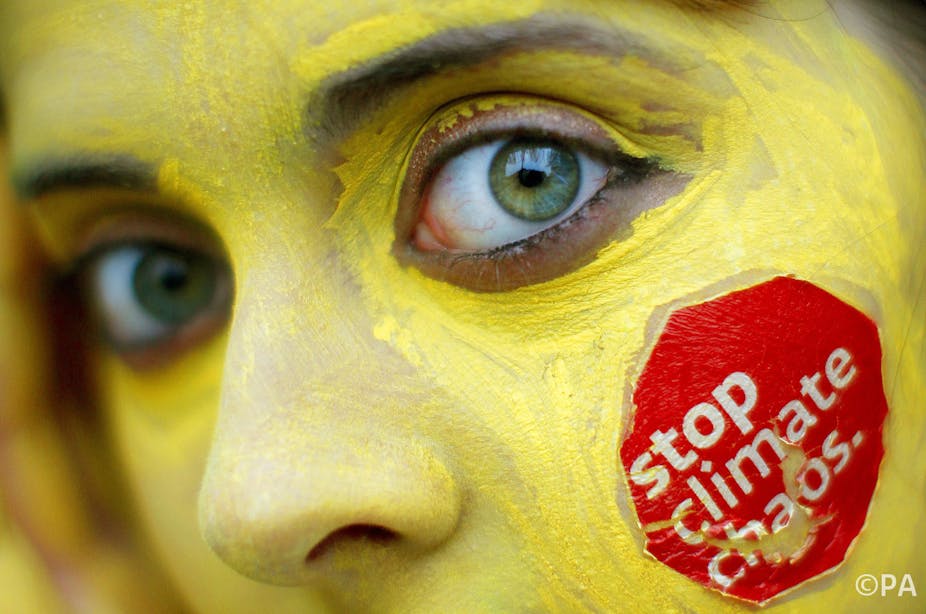Russia is the fourth largest producer of greenhouse gases, but has shown little initiative and remained quiet among the turmoil at the UN Conference of the Parties (COP) climate summit in Warsaw. The hottest issues under discussion – of compensation for loss and damage and historical responsibility – appear of little relevance to the country. Her delegation openly admits it prefers to concentrate on negotiating the terms of a new, post-Kyoto agreement. While experts claim climate negotiations have little economic and political importance for Russia’s transition economy, climate change is in fact set to deliver drastic damage to the country.
The current climate negotiations split between developed and developing countries in issues of loss and damage and climate finance. According to Alexey Kokorin from WWF Russia, one of the country’s leading climate experts, Russia feels it falls in between, neither a major donor nor recipient country.
That doesn’t mean the country doesn’t like to emphasise its role as a global leader. At the last round of climate negotiations in Doha in December 2012, Russia felt its interests and reputation had been publicly violated, demanding due compensation. Again, in the climate meeting in Bonn this summer the country’s delegation blocked progress in a key technical working group. For the months before the Warsaw conference there has been fear of a repeat performance, but it seems to have resettled; the conference adopted its agenda on the first day without serious Russian protest.
However, simply not being obstructive is hardly a demonstration that Russia is playing a leading role, as she aspires to. In terms of climate policy ambitions – domestic and international – Russia falls behind not only most developed countries but also its partners in the informal BRICS (Brazil, Russia, India, China, South Africa) group.
Still, in the few months before Warsaw, the government approved a package of legal initiatives to support the development of renewable energy through the capacity market, and a target of 25% emissions reduction by 2020, based on 1990 levels. Legislation that requires a 40% increase in energy efficiency per unit of GDP unit by 2020 was passed in 2009.
But what is passed in the Duma in theory does not always bear any relation to practice in Russia, which lacks many of the day-to-day political and business practices of a green or low-carbon economy. Russian climate policy is best characterised as “window-dressing”, according to Kokorin. Here in Warsaw, the Russian delegation hardly takes part in debates. He says that Russia simply makes demonstrative plays of its own importance, without playing any practical part in the proceedings. This extends to cutting off its nose to spite its face: Russia is unlikely to apply for climate finance, considering itself a rich and developed country – even though such funds would be very useful to help develop low carbon technologies, improve energy efficiency, and build sustainable forest management.
But this flippant attitude is not supported by the facts. According to the Moscow Higher School of Economics (HSE) estimation, the Russian economy’s losses from climate change could rise to between US$200-700 billion per year in only a few years. Drought in 2010 and 2012 have slashed Russian grain harvests by up to a third, generating financial losses exceeding US$10 billion and inflating grain prices. Georgy Safonovfrom the HSE has calculated that climate change will shrink crop yields by 9% by 2030 and by 17% by 2050.
The growth of forest fires in Siberia’s vast boreal forests and expanse of tundra is also worrying. According to Safonov’s estimations, without a sustainable forest management policy Russian forests might turn from net absorbers of CO2 to net emitters by 2040. In addition to fires, the forests’ growing age, the spread of tree pests and diseases, and harmful logging practices are all concerning.
But none of these climate risks are officially recognised in Russia, where no one has thought to put in place any climate adaptation plans. Lacking any domestic climate policy, it would be irresponsible for Russia to be involved in setting up international climate initiatives.
Still, finding itself in a “neutral” position during the current climate discussions, Russia could take a more pro-active role, bringing in ambitious international initiatives which might help the negotiation process to resettle the issues between developed and developing countries. It doesn’t show any signs of any such ideas yet, and domestic policy doesn’t really enable the country much room to do so. But it should be something for Russia to consider.

